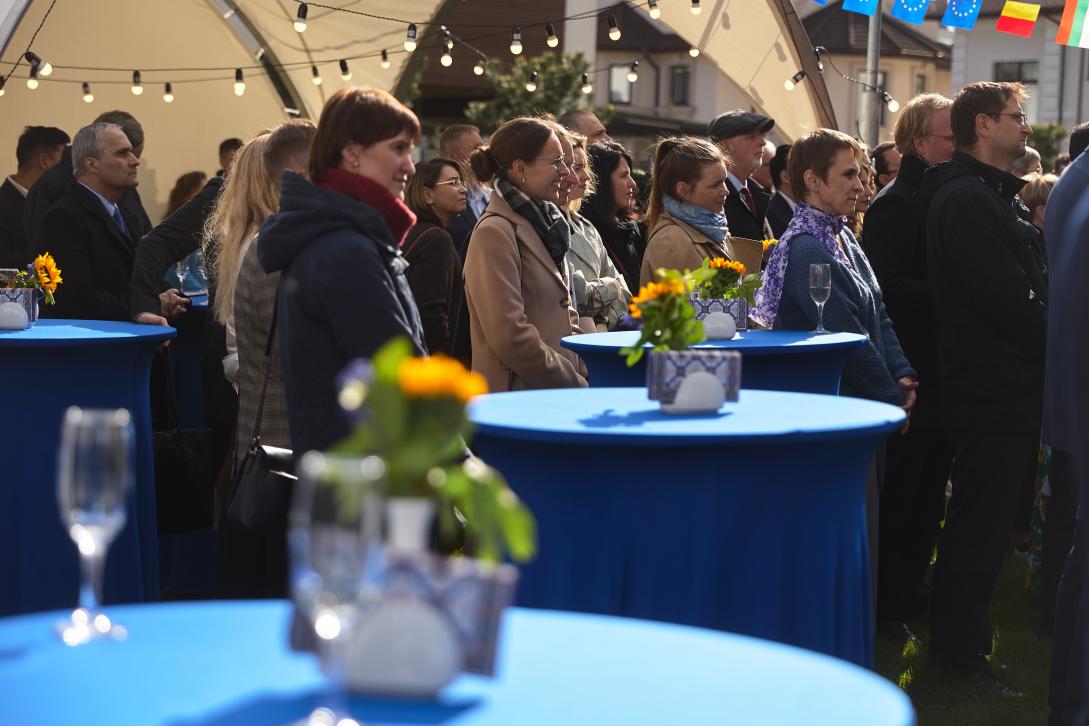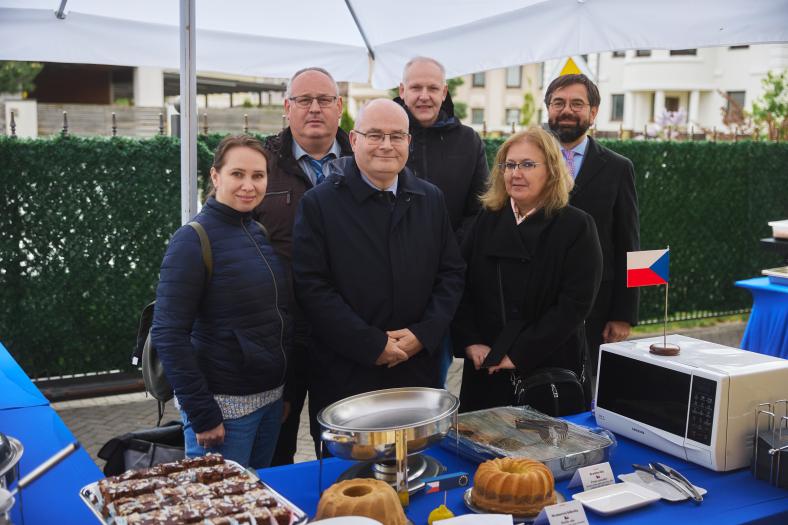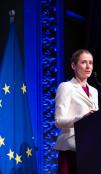Europe Day 2025 in Minsk, Belarus

Message from the Head of the Delegation of the European Union to Belarus on the occasion of Europe Day 2025
/Check against delivery/
Europe Day this year – on 9 May – is the 75th anniversary of the Schuman Declaration that we consider the birth certificate of the EU. The then French Foreign Minister, 5 years after the end of WWII in Europe, set out the parameters for European Integration and co-operation. From the beginning, a peace project. The opening of the declaration states:
“World peace cannot be safeguarded without the making of creative efforts proportionate to the dangers which threaten it”. Let us heed the words today as well.
The European Union remains committed to peace, partnership, and cooperation — within our borders and worldwide. We defend and promote a rules-based international order, not the law of the strongest. We oppose the violation of the rules-based international order and stand ready to defend it.
The world changes rapidly. There is more fragmentation. The EU is adapting to these new political realities. The EU keeps its commitment to multilateralism, with the UN fully empowered to find solutions to the challenges faced by humanity. We are ready to rethink and shape the future of multilateralism together with all our partners.
The EU is reliable, predictable and open for fair business. Europe already has trade agreements in place with 76 countries, and we are now growing this network. We just concluded trade deals with MERCOSUR, Mexico and Switzerland. We launched the first-ever Clean Trade and Investment Partnership with South Africa. We aim to conclude a trade agreement with India by the end of the year. We are in intense negotiations with Indonesia and Thailand. We will continue to build bridges with all those that, like us, care about fair and rules-based trade as the basis for shared prosperity. [...] The EU wants to work alongside other countries in adapting to climate change.
In June 1992, Belarus asked the European Commission (of the European Communities) to establish diplomatic relations, which the EC accepted by note less than a month later. In other words, within a year of Belarus’s independence, diplomatic relations with the EC were established.
At that time, [Belarus did not border on] the European Communities. There were 12 members of the EU then. The closest to Belarus was Germany, 582 kilometers away, Denmark being second. Today there are 27 Member States, and we share 1200 kilometers of common border. When Schuman made his declaration, Germany and France had 450 kilometers of common border. No one who has spent time in Belarus would disagree that Belarus is European by culture.
Relations are difficult at present. However, since 1992 the European Communities and later the EU has strove to maintain relations with Belarus. They do not today encompass the full range of co-operation possible. This is not the EU’s choice. As we all know, circumstances and policies with them may change. The EU hopes for all that they do.
As I started out by quoting Schuman, I would wish that we heed his words once again. I hope that we will be able in the future on 9 May - together - commemorate the end of WWII in Europe and the birth of the European peace project. In Minsk as in Brussels. In Hrodna as in Lyon. In Mahiliou as in Milan. In Polatsk as in Uppsala. In Vitsebsk as in Timasoara. In Homiel as in Magdeburg. In Brest and in Linz. In Debrecen and Barysau. In Kosisce and in Zhodzina. In Brno and in Slutsk. In Rszeszow and in Niasvizh. In Varna and in Turaw.
The EU’s official motto is “unity in diversity”, which has ensured and will ensure its continued success. I hope that will be together with Belarus too. THANK YOU.











